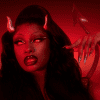Selim Bulut is a music writer who lives in Manchester. He has the most meticulously organized iTunes folder in the land. He’ll be writing about some of the excellent music coming out of the UK every other week.
Without meaning to place too much pressure on him, it’s fair to say that Illum Sphere is one of the most adventurous DJs in the UK right now. It’s funny, too, because he’s not really doing anything particularly daring—far from it. Illum Sphere simply plays music that he likes. Whilst many DJs tend to either be very genre-centric, or obsessed with keeping ahead of the curve, his anything-goes attitude is surprisingly rare. As such, a typical Illum Sphere set may jump from a dusty Turkish disco song to vintage hip-hop to bleeding-edge techno to grime, but it never feels contrived. His sets have caught the attention of a lot of people with open minds: he was invited to play Low End Theory in LA, and when Thom Yorke curated a show at the Boiler Room, he picked Illum Sphere to appear.
Five years ago, Illum Sphere set up a club night called Hoya:Hoya with fellow DJ Jonny Dub. Taking place once a month in the 300-capacity Roadhouse in Manchester, Hoya’s freewheeling music policy—or rather, lack of policy—makes it one of the most exciting nights in the UK. A typical Hoya night sees the rotating cast of residents play alongside a secret, unannounced guest, and in the past they’ve had the likes of Kode9, Actress, Hudson Mohawke, the Gaslamp Killer, Four Tet and countless others grace the room. But really, it’s not about the guests. Alongside Illum Sphere and Jonny Dub, Hoya’s residents include LuckyMe’s Eclair Fifi, Nottingham dream rave artist Lone, boogie boy and Rinse signee Krystal Klear, and underground hero Jon K, all playing the best music you’ll ever hear in one of the most intimate venues you’ll ever visit. Deft MCs Chunky and Fox round off the Hoya family, whilst EMN provides eye-popping visuals.
Illum Sphere makes music, too. He's a Red Bull Music Academy graduate who has released on labels including Young Turks and remixed artists like Radiohead, with a debut album coming up for Ninja Tune in the near future. I met up with Illum—real name Ryan Hunn—at a tea house in Manchester’s Northern Quarter. I ordered a blood orange tea, he ordered a coffee, and we talked about Hoya:Hoya, being ten feet from your heroes and losing a small fortune.
What was the initial impetus for starting Hoya:Hoya? Me and Jonny Dub wanted to DJ in a club, on a big system, and book people that wanted to see. It was that simple. There was this seminal night in Manchester called The Electric Chair that ran for about 12 years and was coming to an end, so there was a space going at [its venue] the Music Box. We came up with the name about five minutes before the flyer had to go to print. We did four nights at the Music Box and lost a lot of money. Like, a hell of a lot of money. Like, a good few thousand pounds in the first few months. We decided to downsize, so we moved to the Roadhouse, and we’ve been there ever since.
Do you think the people you want to see still aren’t being booked anywhere else? No, it’s totally different now. Now, certain artists could play at any five or six nights, whereas when we started Hoya, which wasn’t even that long ago really, no one was doing that. Not to try and claim ownership, it was just the timing. People hadn’t coined the term “bass music,” which I don’t really agree with as a term anyway, but it wasn’t a thing. And the LA thing was just getting going, it was around the time Flying Lotus released Los Angeles, and we were good friends with people like Gaslamp Killer, so they’d come and play. I think the city’s definitely healthier now, but that’s just the natural thing that’d happen anywhere as that kind of music becomes bigger and more widespread.
What was the thinking behind getting the other residents on board? There came a point where me and Jonny wanted to take new people on. Krystal Klear had played a couple of times and was new to Manchester. Lone had been to Hoya a few times and was moving up from Nottingham. Eclair Fifi and Jon K had played a few times and we were like, This kind of just makes sense. I think Jon K saying yes was the big one for us. It was this sense of validity he brought. Jon doesn’t fuck around. He’s my favourite DJ in the whole world, and to get him to come on board and be a resident was like, Cool, we must be doing something right. And it’s cool, because, our resident-only night is still a good line-up, in my opinion.
Yeah, when I first heard about Hoya I thought the names of the residents were pretty big in their own right. We wanted to make sure the residents were the focal point. When we decided to go secret [with the guests], that came as a reaction to what was going on around us. We didn’t want to sell each Hoya based on who was guesting. Instead of putting their names on the flyer in a huge typeface, we went the other way and just took them off. A lot of people couldn’t understand why we were doing that at the time. I think it made it a more special. Take the Four Tet night for example: we wanted to reward the people who had been there by being able to see Four Tet in a 300 capacity venue for six quid. A few years ago we did Kode9, Actress and Hudson Mohawke on one night, and it was a fiver in. Say Four Tet's your hero, you're gonna remember that moment being ten feet away from him DJing.
Do you think these sorts of nights rely on being in a smaller city? Could they exist in the same way in a place like London? Yeah, because you do have nights like it in London. But I don’t think Hoya could’ve gone the same way it has done if it had been in London—that’s just my gut feeling. We benefit from being in Manchester because we are an outlet for a lot of artists based in London, which a lot of them are. It’s a totally different vibe up here to London, and that's why so many people based in London come and play.
As a touring DJ, what’s the benefit of coming back to a residency every month? Everything’s how we want it. We know the mixer. We know how the visuals are gonna look. We know the bar staff. Everything is set up how we want it to be. It’s rare that I go somewhere and I enjoy it as much as I enjoy Hoya, which is pretty amazing, really. We’re lucky that people are so into what we do because it wasn’t geared toward being a “night”. It was a very selfish thing—we wanna DJ in a club and see who we wanna see, and that’s it. We were lucky that other people were into who we wanted to see, and us as DJs, and that we’re somehow here five-and-a-bit years later. It’s good to have that every month, to see the same faces.
You’ve got your debut album coming up for Ninja Tune soon. Do you see yourself more as a producing artist or as a DJ? I think the two are separate, but they link. I’d like to scale back on the DJing thing a bit because I’d like to work on other projects, stuff under other aliases. With this album, it’s so personal to me, it’s just an avalanche of all my influences that I’m trying to scale into 40 minutes. When I’ve finished it, I can see myself having a huge weight off my shoulders, and being able to explore more avenues geared towards the DJing side of things. Maybe something more dancefloor-oriented, because my primary focus isn’t to make things work in a club context—as a DJ, I just like playing stuff that I like. So I think they’re essentially the same thing, and of equal importance to me. However, if I had to pick one to do forever, I’d probably go with producing.
I know you’re talking about making dance tracks there, but can you tell me about your relationship with pop music? Some of my favourite music was pop music, but I’ve not really got any pop aspirations. I don’t want to be a superstar, and I don’t want to make music that’s geared towards making a step up in that world. For example, I'd love to work with Missy, and if she asked me to produce something for her because she’s into what I do, of course I’d do it. But if she wants me to make something that sounds like something else, I’ve got no interest in that at all. If what I do somehow becomes really popular I’m not gonna shy away from it because I’m suddenly getting a lot more recognition, but I’m not gonna do something differently because I know it'll get me to that place.


